Resource Library
Filter by Audience
Filter by Topic
Filter by Media
35 items
Handout
Caregiver Handouts: Games and Activities that Build Brains and Executive Function Skills
Here you’ll find handouts with suggestions for games and activities to do with children of different ages. They can be shared at well child visits or when caregivers are looking for support with behavior. These activities can promote child-caregiver bonding, executive function skills, and build children’s brains through play.

Handout
Executive Function: Information for Providers
This handout helps explain what executive function skills are, why they are important and how supporting their development can promote healthy child and adolescent development.

Third Party Link
How to Motivate Children: Science-Based Approaches for Parents, Caregivers, and Teachers
How to Motivate Children: Science-Based Approaches for Parents, Caregivers, and Teachers…

Brief
InBrief: The Foundations of Lifelong Health
This brief summarizes essential scientific findings from the Center publications, “The Foundations of Lifelong Health Are Built in Early Childhood”.

Working Paper
Maternal Depression Can Undermine the Development of Young Children
This working paper from the National Scientific Council on the Developing Child and the National Forum on Early Childhood Policy and Programs examines why addressing the consequences of serious depression in parents and caregivers could support the future prosperity and well-being of both children and society as a whole.
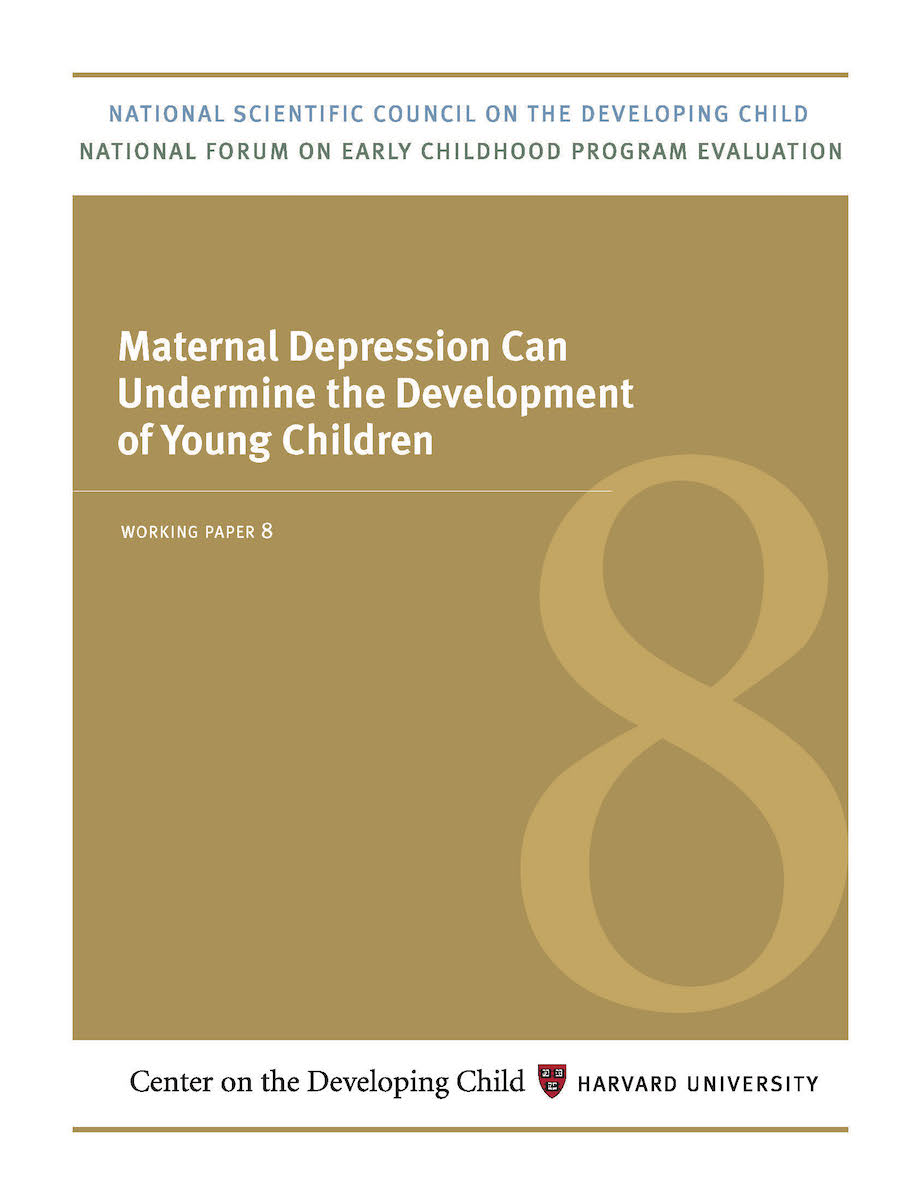


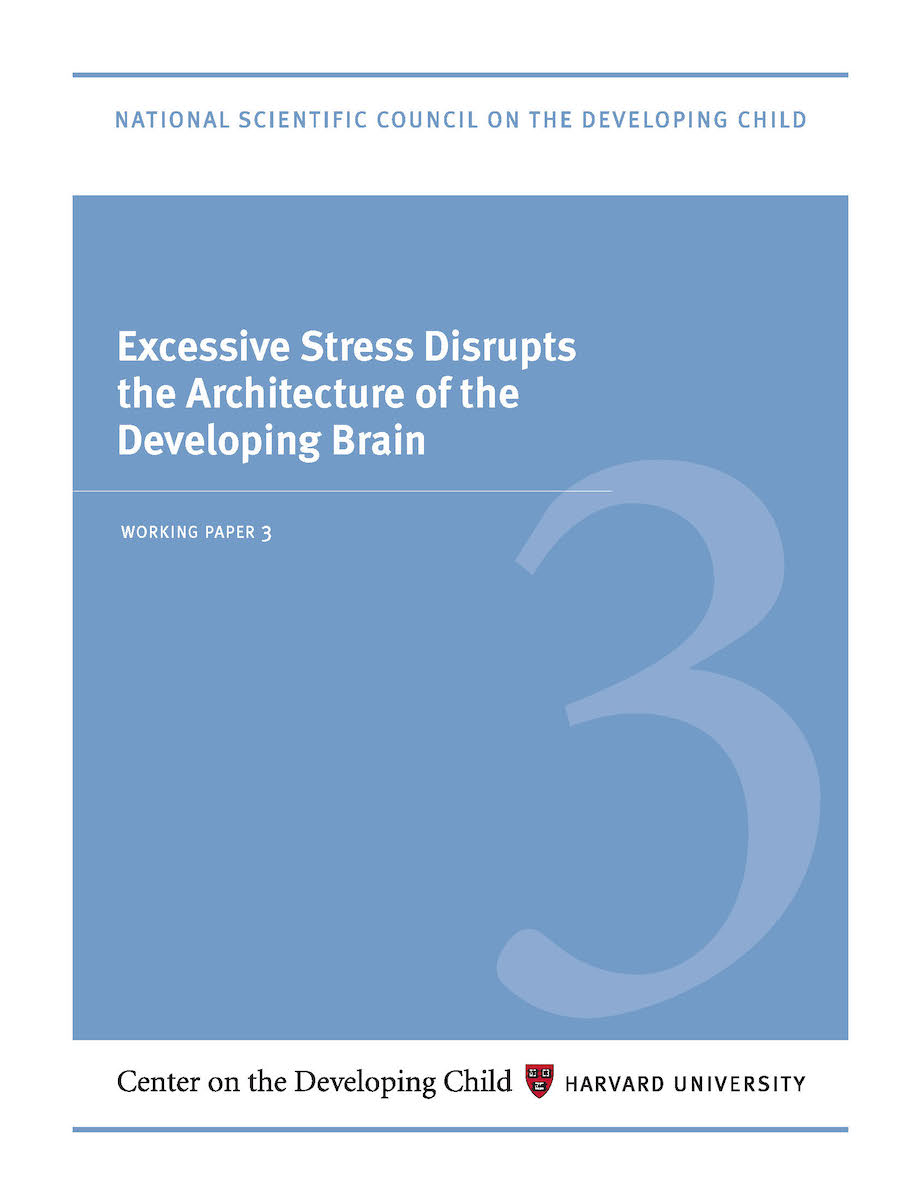
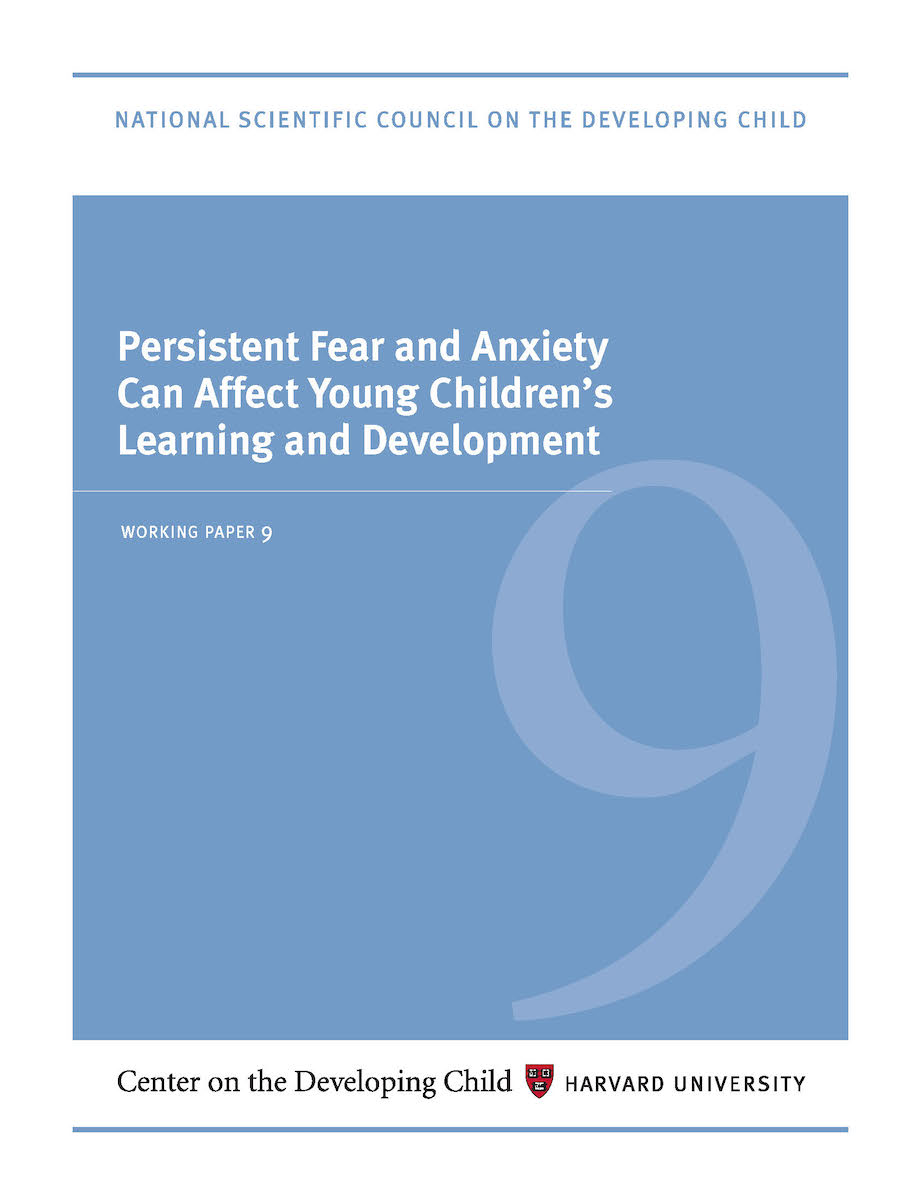

Working Paper
The Science of Neglect: The Persistent Absence of Responsive Care Disrupts the Developing Brain
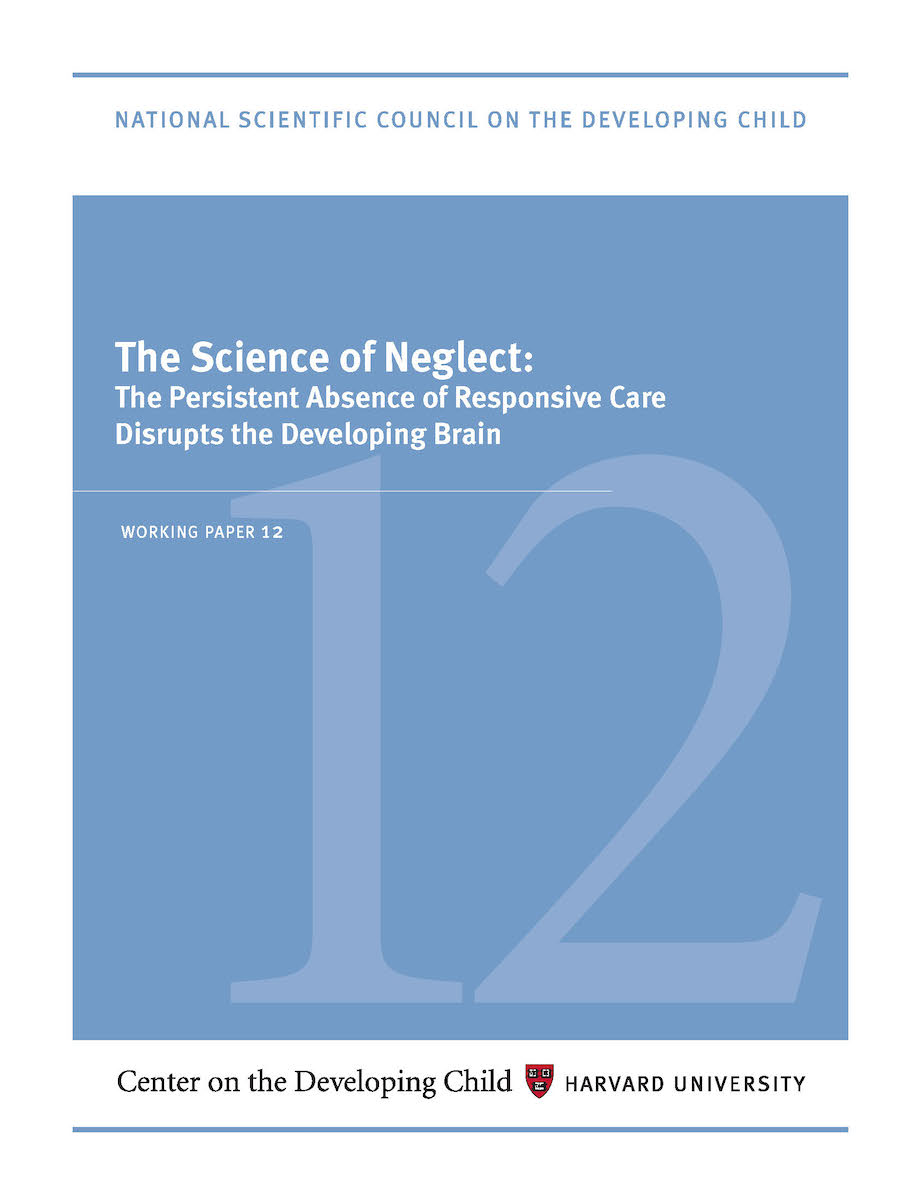


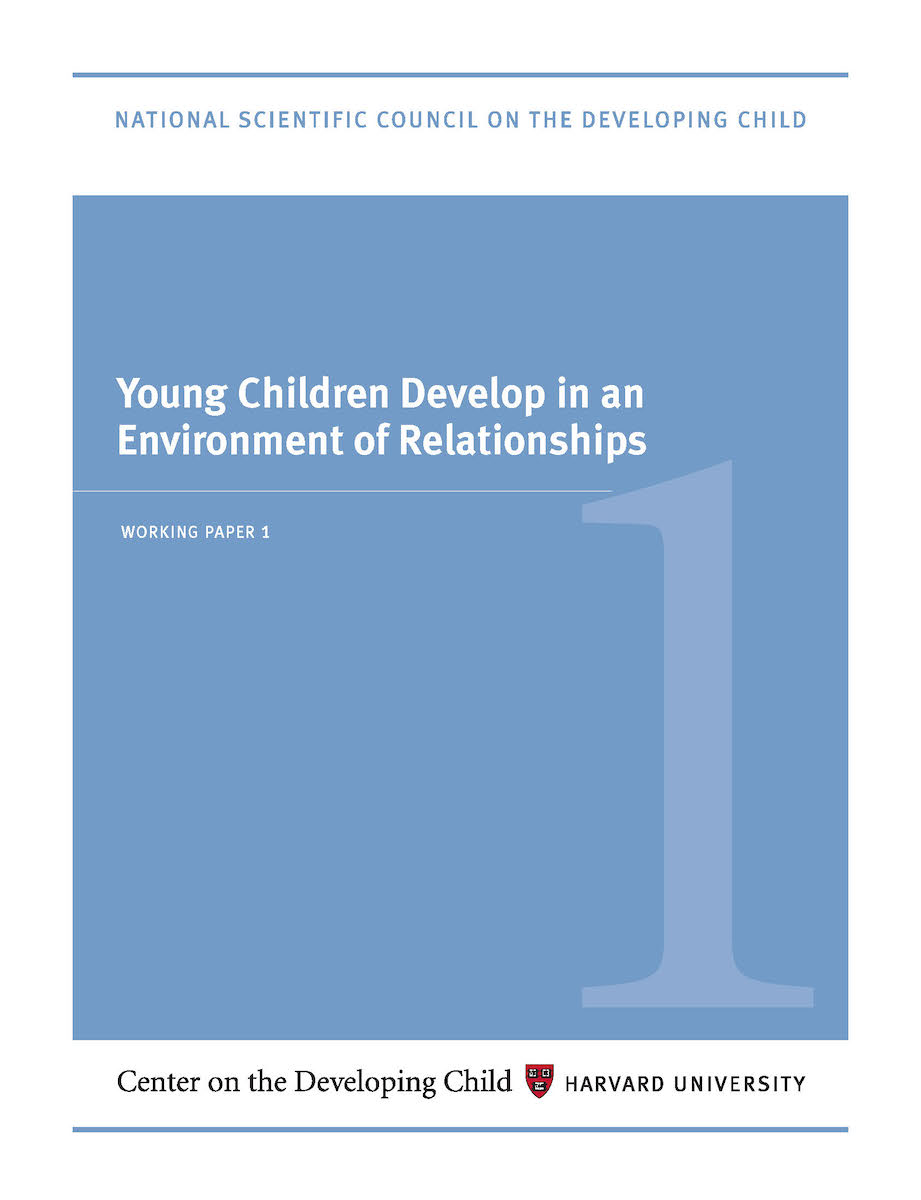
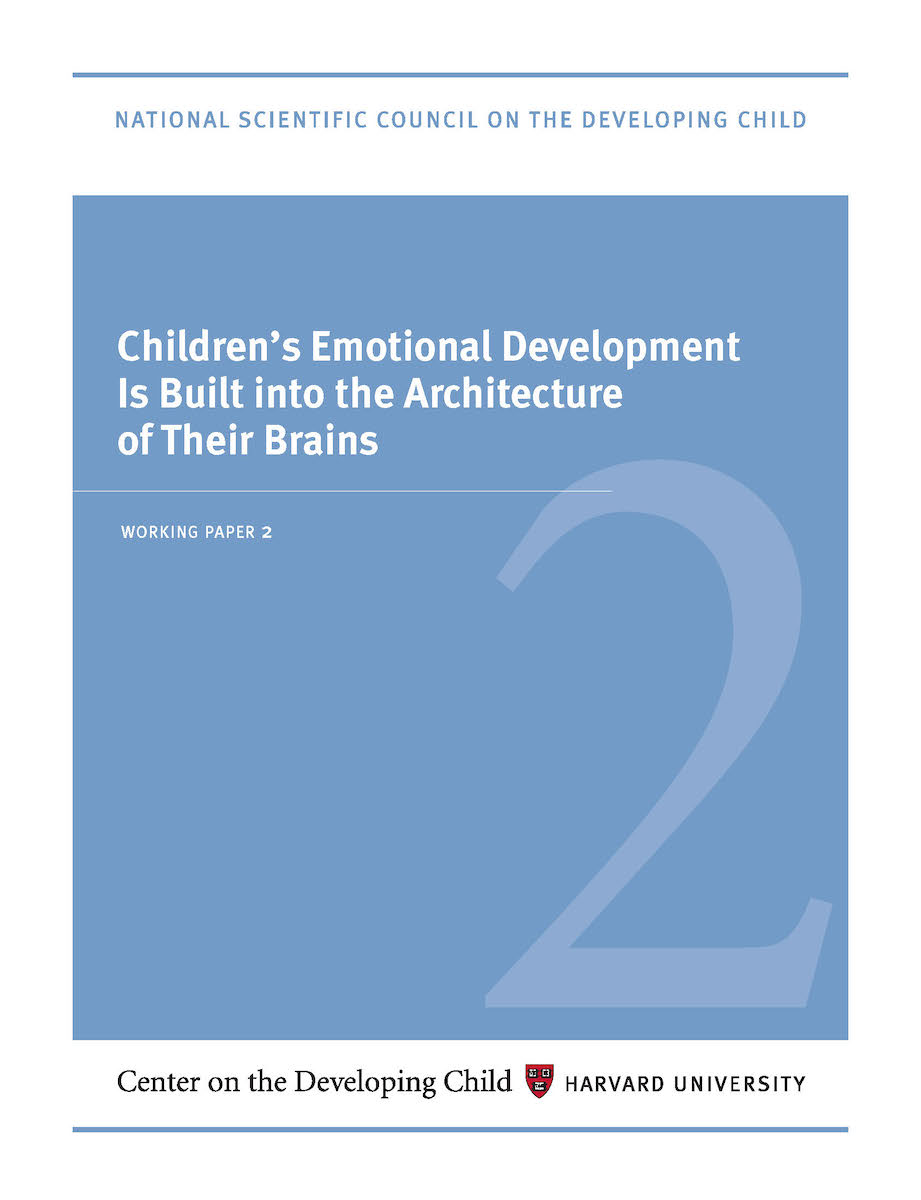
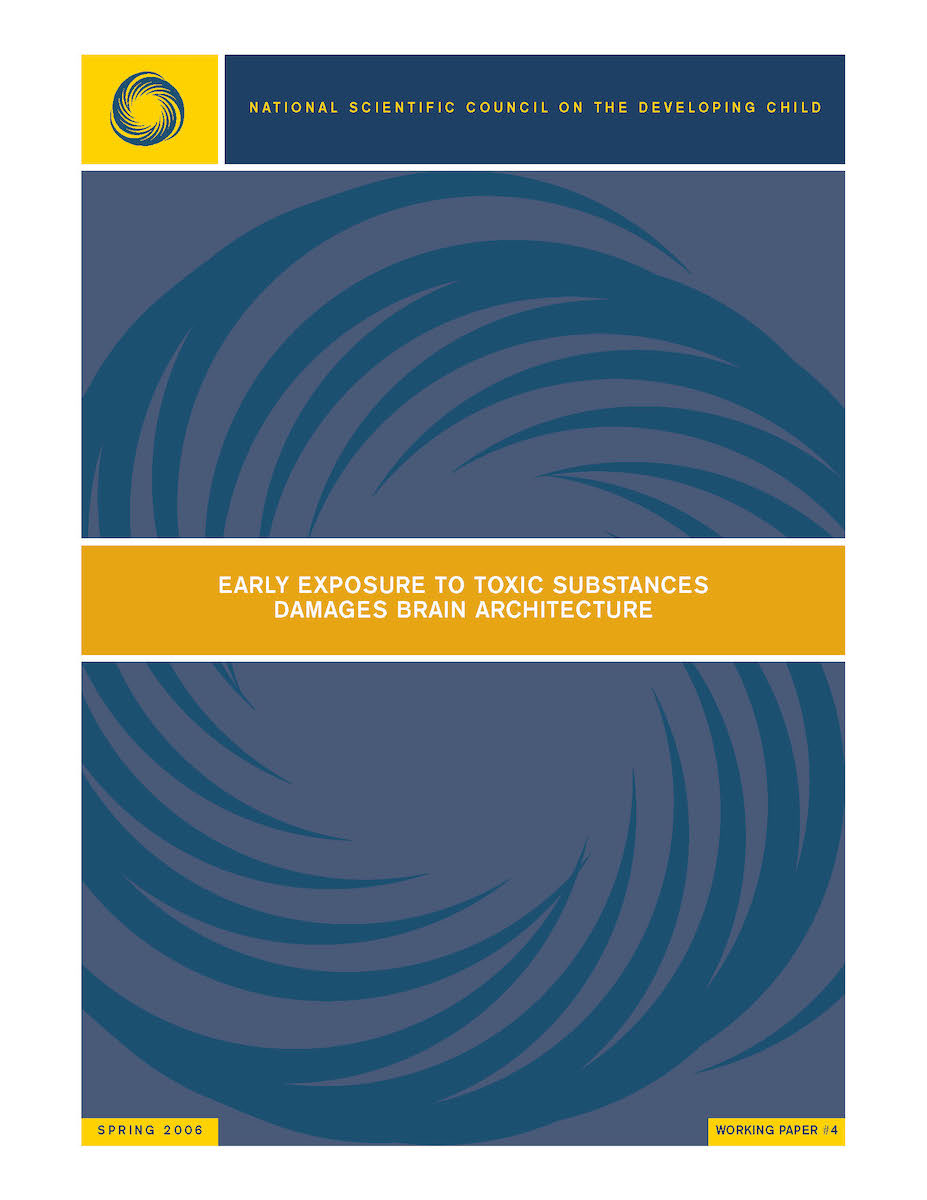
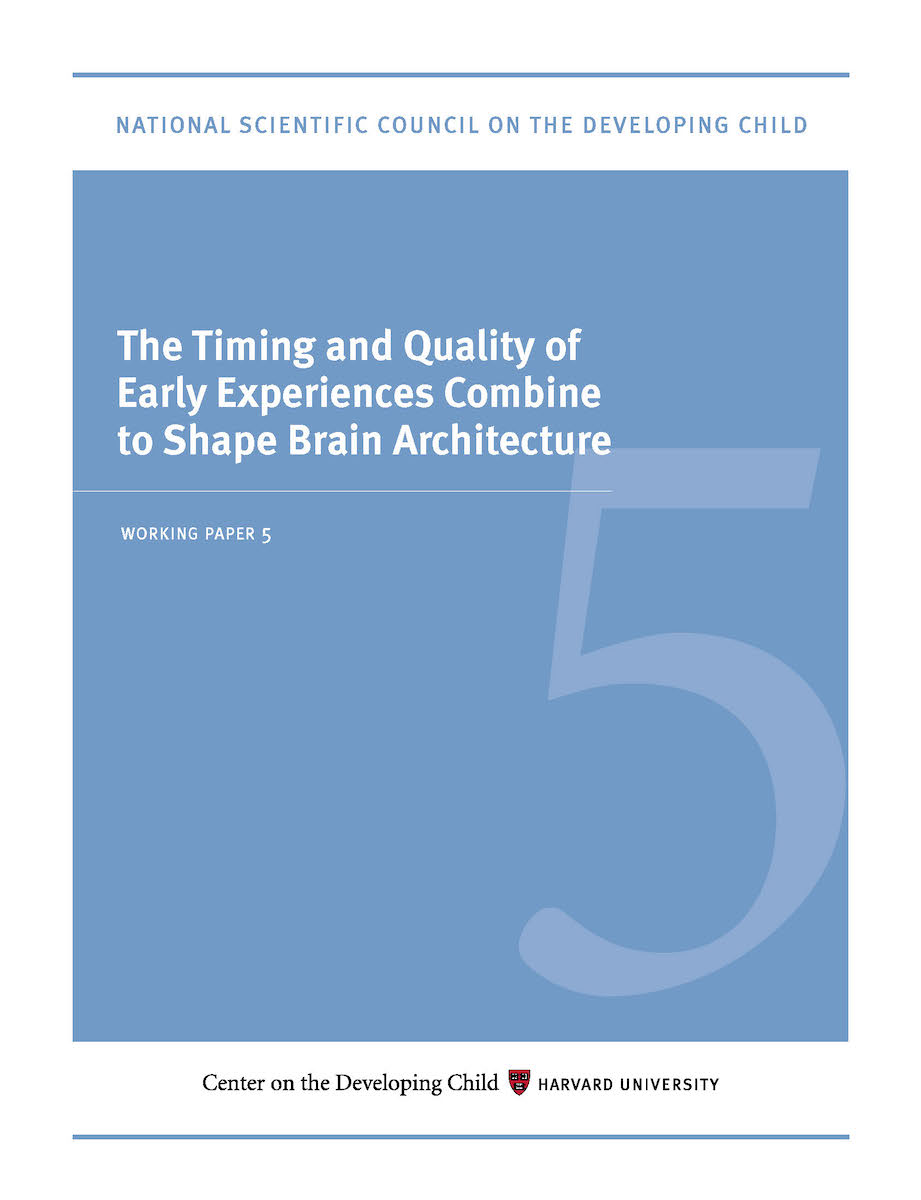
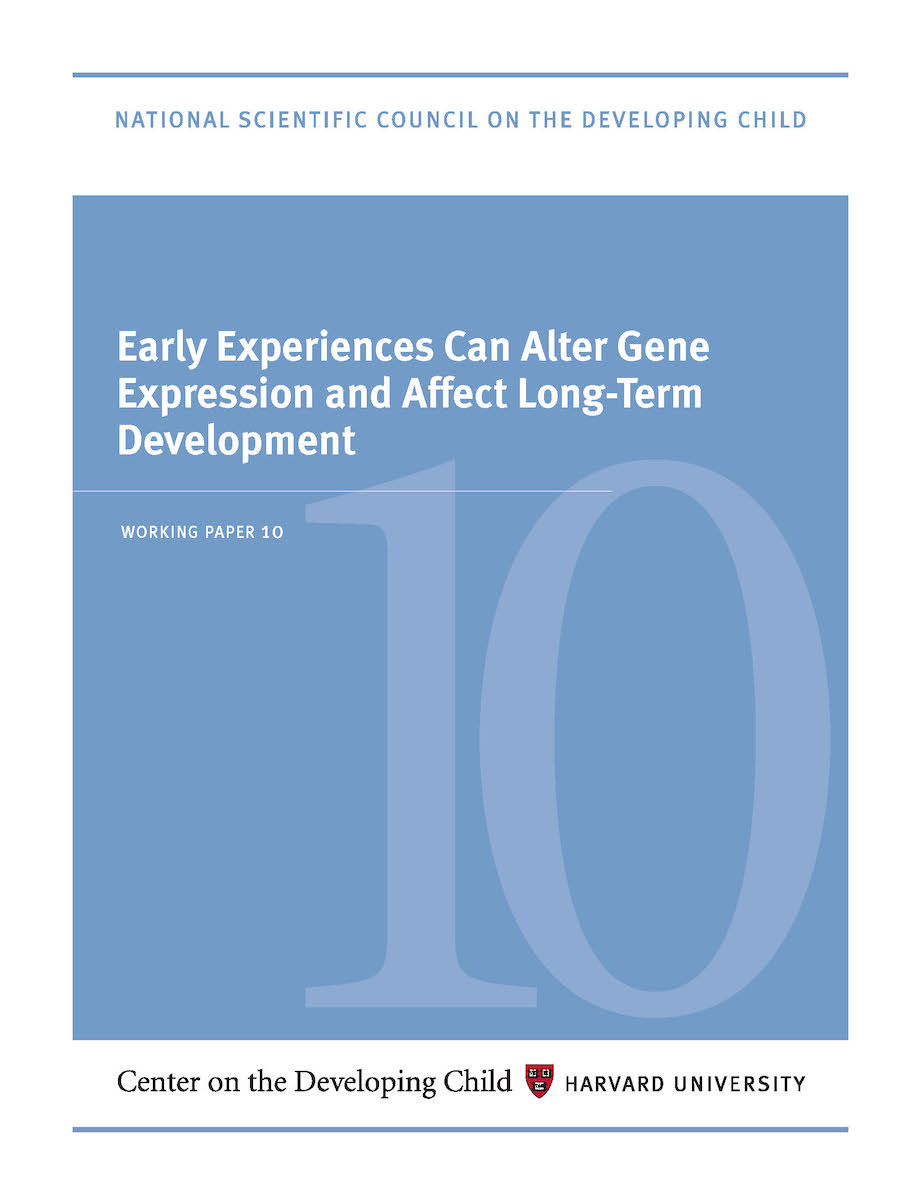
Working Paper
Connecting the Brain to the Rest of the Body: Early Childhood Development and Lifelong Health Are Deeply Intertwined
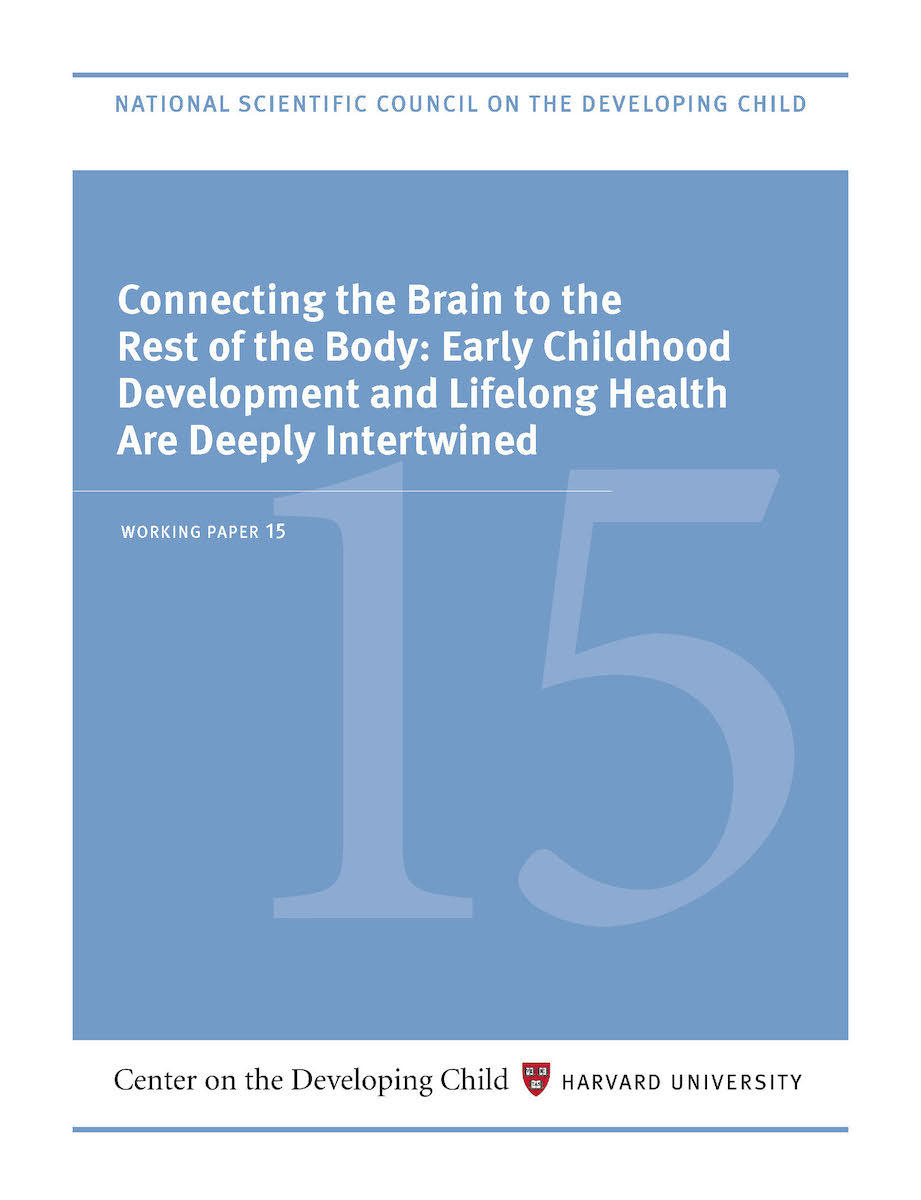

Working Paper
Understanding Motivation: Building the Brain Architecture That Supports Learning, Health, and Community Participation
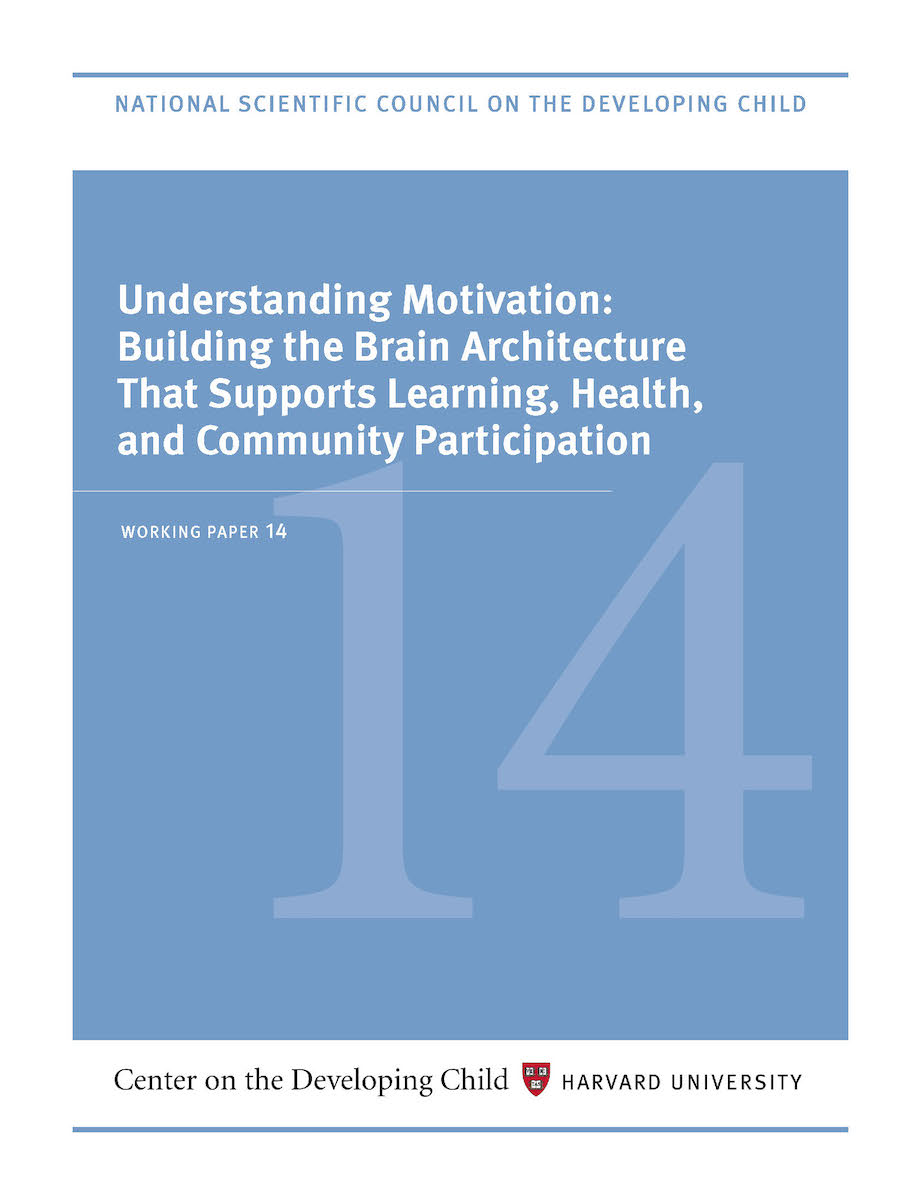

Working Paper
Building the Brain’s “Air Traffic Control” System: How Early Experiences Shape the Development of Executive Function
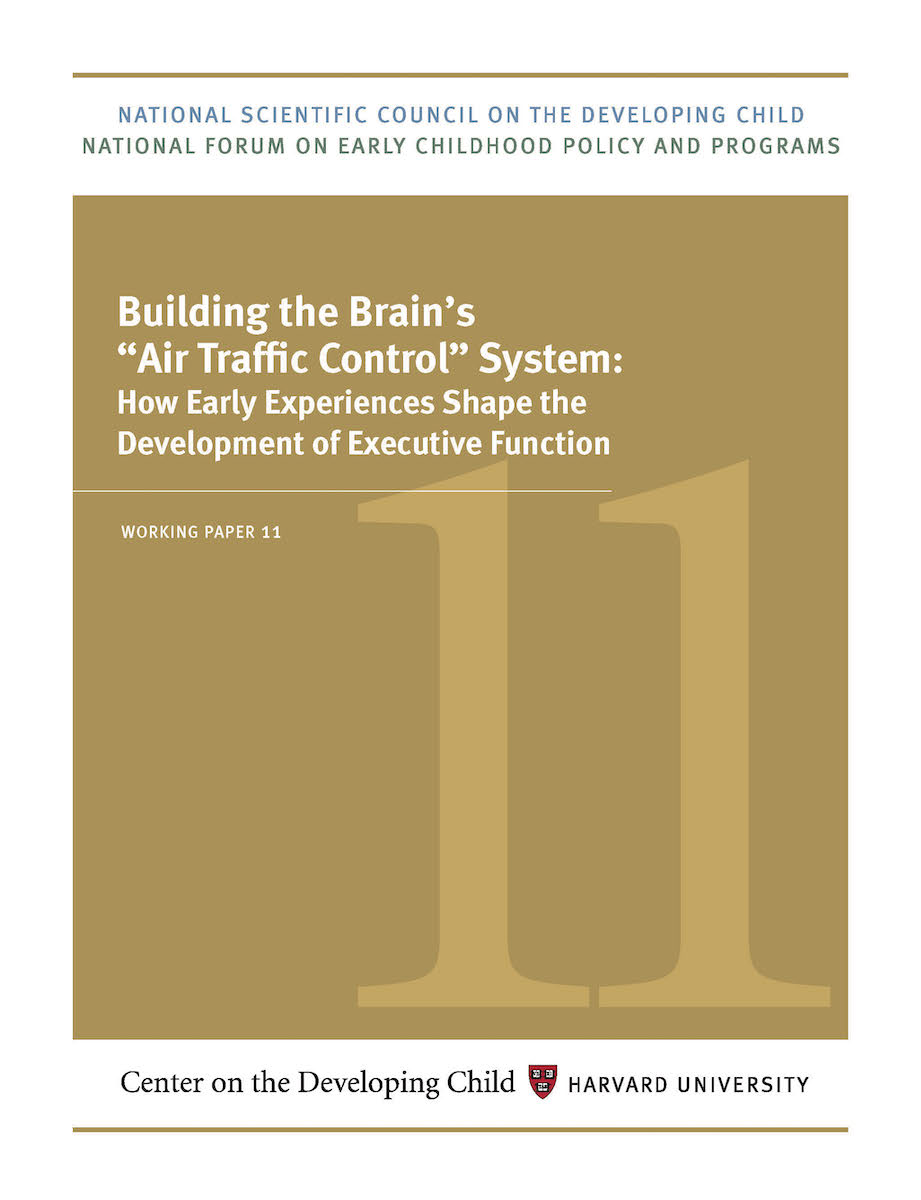

Working Paper
Supportive Relationships and Active Skill-Building Strengthen the Foundations of Resilience
This working paper from the National Scientific Council on the Developing Child explains how supportive relationships with adults help children develop resilience, or the set of skills needed to respond to adversity and thrive.
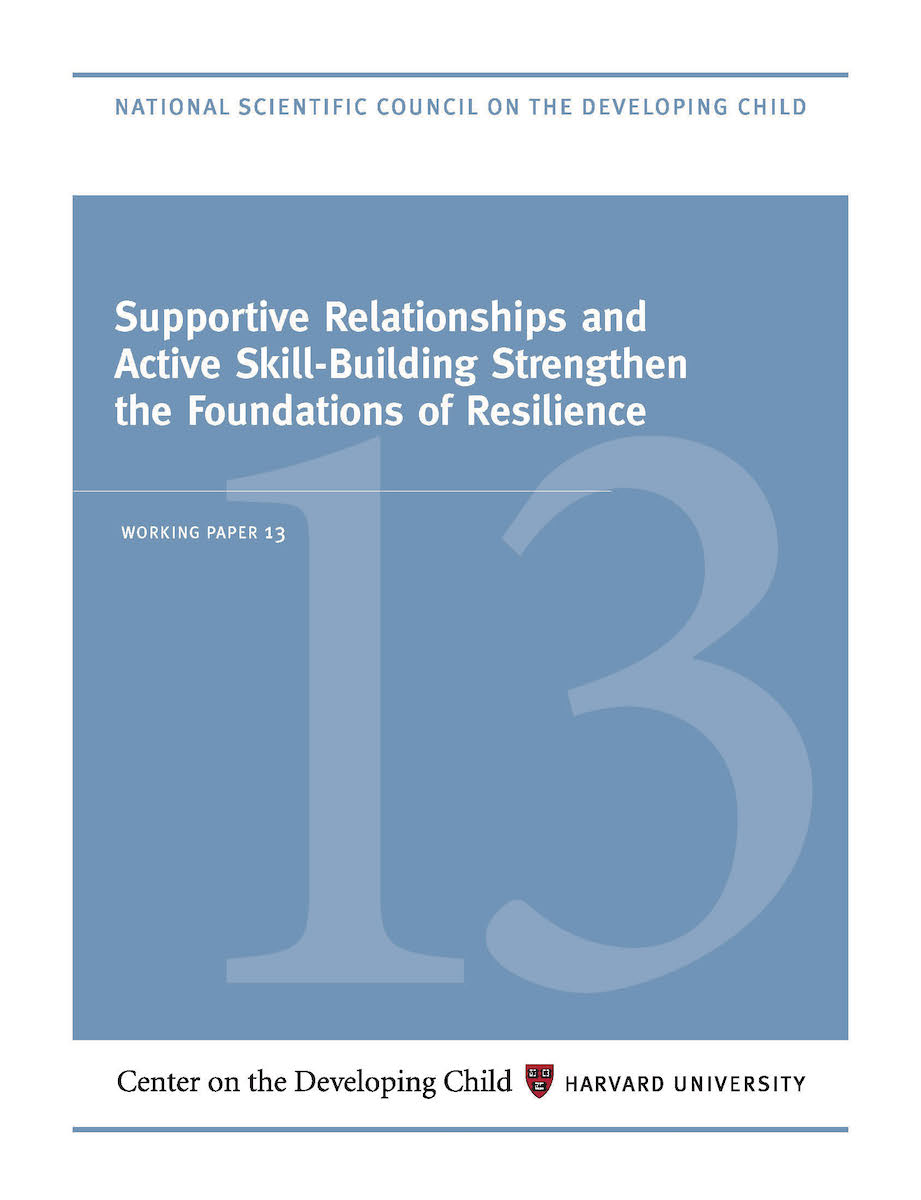
Third Party Link
Building Babies’ Brains Through Play: Mini Parenting Master Class
Building Babies’ Brains Through Play: Mini Parenting Master Class…









